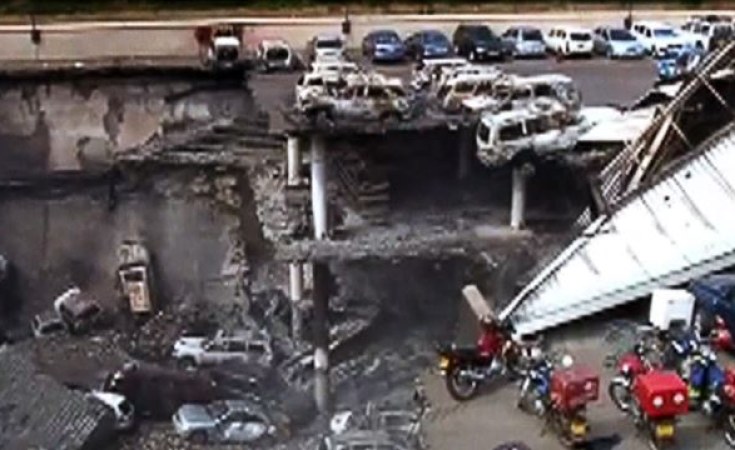Nairobi — The Private Security Regulatory Authority (PRSA) is in the process of developing a policy framework set to prioritize National Youth Service (NYS) training as a key consideration for employment by private security companies.
Speaking Thursday when Kenya marked the 10th anniversary of the Westgate Mall terrorist attack, PRSA Director General Fazul Mahamed said the move will partly help solve the challenge of huge unemployment among the trained NYS youth.
Mahamed, said that the policy will see to it that the private security officers absorbed into the sector are well trained to handle different security threats.
"This is a win-win scenario for the private security industry, which will have easy access to a pool of skilled and professional personnel for employment, and for the government, which will see this as a synergistic engagement with huge potential for youth employment," he said.
According to Mahamad, it costs the government over Sh250,000 to train 1 NYS serviceman/servicewoman from admission to completion of their course and subsequent graduation.
Ironically, and at great cost to the taxpayer and the youth themselves, the PRSA Director General said that the government funded investment entailing rigorous 6-month paramilitary training, is underutilized.
Upon graduation, Mahamed pointed out that there is no established framework for the absorption, transition, placement and/or employment of the members of the NYS in either the private or public sector.
"This is despite the fact that the NYS programmes embody security, intelligence and paramilitary training that provides a prepared pool of highly competent, screened and vetted soldiers with a high level of discipline that translates directly into the requirements for entry into the private security industry," he said.
He further emphasized that the deep penetration of PSOs into society, coupled with their daily interaction with citizens, strategically places the officers at the centre of raw intelligence, giving them unfettered access to a treasure trove of information vital to the planning and other security measures.
Private security integration
The PRSA DG added that private security agents create a perfect human surveillance system whose intelligence, he argues "is not only credible, but real-time."
"The static nature of the PSOs' deployment enables them to have a clear and intimate knowledge of what is 'normal' at their workstations, enabling them to quickly spot tell-tale trends that are deemed inconsistent and 'out of the norm' and of immense interest to our national intelligence network," Mahamed said.
Commenting on the plans to integrate the private security industry into the national security infrastructure, Mahamed said the move will enhance intelligence gathering, information sharing, crime detection and deterrence, crime scene protection and the collection and preservation of evidence.
"Once formalised, private security providers will have a direct line of communication with the government's command and control centre to minimize bureaucratic red tape and speed up response in emergencies," he added.
The PRSA Director General disclosed that they intend to recognise private security officers for their bravery and distinguished service, which will ultimately shape their career paths.
Mahamad revealed that PRSA will develop a grading system that will recalibrate reward systems to ensure that officers who are deemed to have excelled in service delivery not only receive appropriate recognition, but also higher grade categorisation and placement in more professionally challenging service cadres.
"Under this arrangement, Grade 'A' PSOs will be rated as the most qualified and will be given the most critical assignments. Grade 'B' officers will be assigned to unarmed cash-in-transit escort duties," he said adding that Grade 'C' officers will be assigned to guard homes and compounds of private individuals requiring security services.


